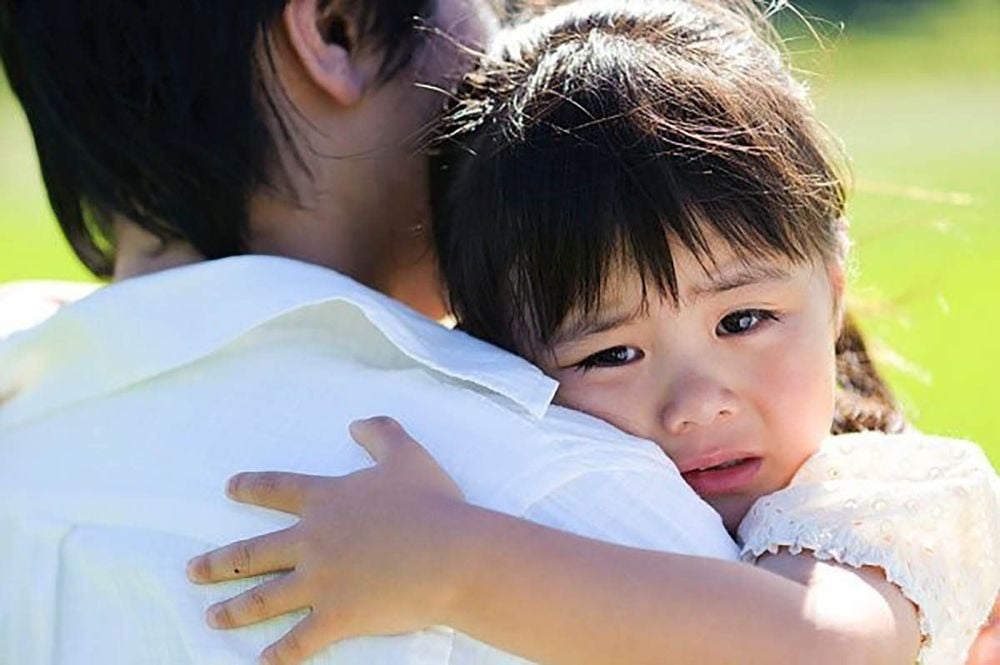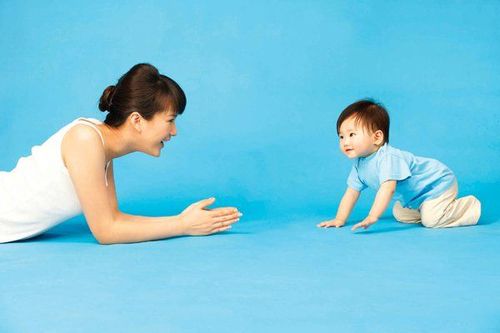This is an automatically translated article.
The fear response in children is a normal emotion, it helps children to be wary of things that are new, loud, big, or different. However, if a child panics a lot, parents need to find out what causes the child's fear and how to overcome this situation as soon as possible.
1. What are children afraid of?
Children often have innocent and pure souls, so new and noisy things can make them scared.
Some common fears according to certain age in children can be mentioned such as:
Children aged 5-12 months are often afraid of approaching objects and sudden noises. Children are also afraid of strangers, may cry, cling to their parents to feel safe. Toddlers often feel separation anxiety. Between the ages of 10 months and 2 years, many children begin to fear being separated from their parents. Children do not want their parents to take them to daycare or to bed. Babies may cry, cling, and try to stay close to their parents. Children aged 3 - 6 years old often have a fear of animals such as dogs, cats, snakes, the dark and monsters. At this stage, children are not always able to distinguish between reality and fantasy. To children, the terrifying monsters they are imagining seem real. Children are afraid of what might be under the bed or in the closet. Many children are afraid of the dark when they go to sleep, some are afraid of dreams. Young children may also be afraid of loud noises such as thunder or fireworks. Older children are often afraid of the dangers in life. For children 7 years and older, the thought of monsters under the bed cannot scare them because they know they are not real. But children can be scared when “bad guys” break into the house, they can also feel scared about natural disasters they hear about. Children are afraid of getting hurt, afraid of illness or losing loved ones. Children may also feel anxious about assignments, grades, or socializing with friends. Children 10-12 years old are often afraid of heights, fear of parents' anger, fear of learning, fear of friendships and the possibility of disaster. Older adolescents are more likely to express fears about changes in their bodies, their appearance, isolation, sex, and world events. Children may feel nervous or scared when entering a new environment, taking part in a big exam or challenging games.

Hãy an ủi khi trẻ hay hoảng sợ để giúp trẻ cảm thấy an toàn
2. What should parents do when their children panic?
When a child is scared, parents can help with the following:
Comfort babies, toddlers or young children by telling them, “It's okay, you're safe. , the parent is here.” Let your child know that you are there to protect them. You need to help your baby get used to strangers when you hold him. Give your baby a hug and whisper soothing words to help them feel safe. With older children, listen and talk about what your child is going through, help them express their feelings, and offer suggestions to help them overcome it. Keep children away from parents for a short time. When you say goodbye to your child for a while, say you'll come back, smile, and hug your child. Let your child feel you are always coming back. For the child who is afraid of the dark, prepare healthy bedtime routines. You can read stories or sing songs to them. Let your child feel safe and loved. Help your child slowly face the fear: Like you and your child checking for monsters under the bed. When you have you around to support, let your child observe for himself, helping him feel his courage. Whatever you do, don't force your child to face her fear, unless she wants to do it. Control what pictures, movies or shows your child watches. Scary content can cause fear in children. Help children and young people learn to prepare for challenges like a test or a class report. Let your child know you believe in him or her. Most children deal with fear with the support of their parents. As children grow up, they will overcome their childhood fears. Some children may have difficulty and need more help with their fear. If the fear is severe or prevents a child from participating in activities of daily living, it may be a sign of an anxiety disorder. Parents need to talk to get the support of a pediatrician and psychologist if their child's fear causes:
The child is very upset or has a tantrum. Children do not want to go to school, children have nightmares, do not dare to sleep alone. Children have physical symptoms such as headache, stomachache or heart palpitations, or they find it difficult to breathe, etc. A child's panic can be due to many different reasons. If this situation persists, it can seriously affect the psyche of the child. Therefore, when children are afraid, parents should apply the methods in the above article to soothe them, gradually teach them how to face their fears, increase confidence, and ensure a better psychology for children.
For more nutritional knowledge and child care for each age, parents should regularly visit the website vimec.com and make an appointment with the leading doctors, pediatric and nutrition experts of the National General Hospital. Vinmec when needing advice on children's health.
Please dial HOTLINE for more information or register for an appointment HERE. Download MyVinmec app to make appointments faster and to manage your bookings easily.













